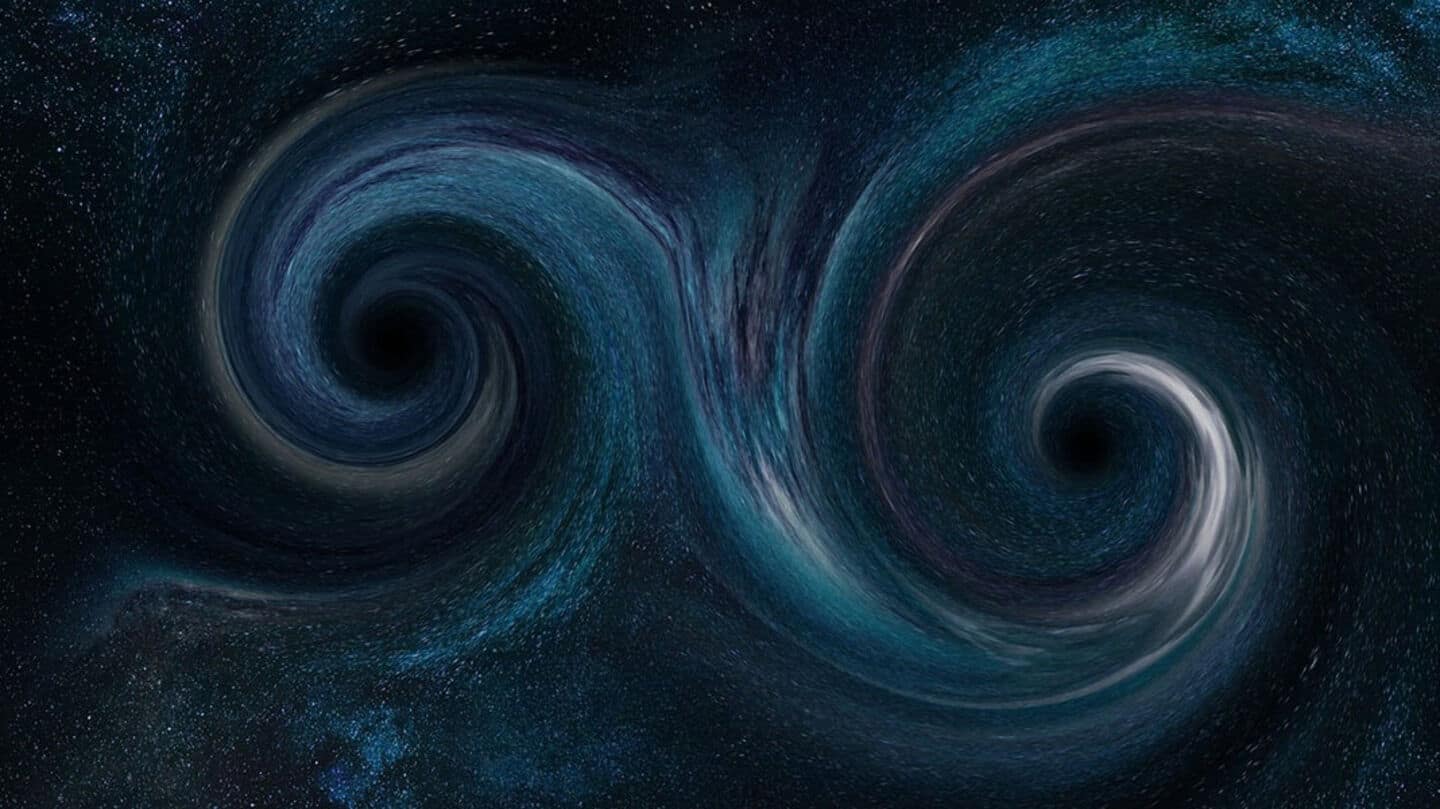
Dark matter might be made of ancient black holes
What's the story
A study by Jessica Santiago from National Taiwan University suggests that primordial black holes, which may still exist in the universe today, could be the source of dark matter.
These peculiar entities were created in the early universe, from patches of incredibly high density in space-time itself.
Stephen Hawking's discovery in the 1970s showed that primordial black holes aren't completely "black" and can emit radiation through complex interactions with quantum fields.
Origin
Primordial black holes: A potential source of dark matter
Cosmologists had once theorized that primordial black holes could serve as possible source of dark matter, the enigmatic substance that makes up most of the mass in nearly every galaxy. However, despite decades of observations, no signs of evaporating primordial black holes have been detected.
Possibility
Research proposes charged black holes
Santiago's study proposed that a new type of electric charge yet to be detected could exist in the universe.
Her team claimed that if dark electrons were prevalent in the early universe, they could charge up primordial black holes, extending their lifetimes by many multiples of the current age of the universe.
Role
Dark electrons' role in the evolution of primordial black holes
The researchers said that dark electrons don't have to stick around after charging up black holes. Their existence in the early universe was enough for this.
Once charged, these black holes would have long lifetimes, possibly explaining why we have not seen any evaporating primordial black holes yet.
The team suggested that charged primordial black holes existing to this date could ultimately be responsible for the phenomenon of dark matter.